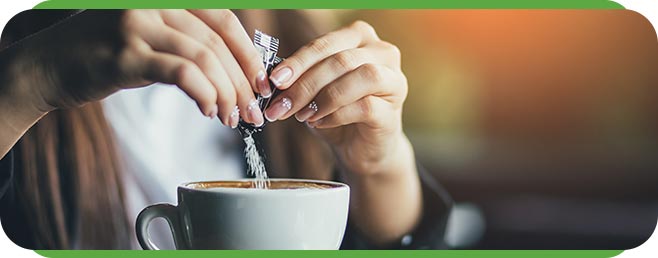Caffeine’s Connection to Sleep Problems Q&A
Caffeine can cause jitteriness, headaches, nervousness, and sleep disruption if consumed more than a certain amount daily or before bedtime. If this habit is not controlled, it can lead to serious sleep problems. If you or any of your loved ones are having sleep issues due to caffeine, talk to our knowledgeable providers at Koala Center For Sleep & TMJ Disorders. Contact or visit us online to book an appointment. We have convenient locations across the U.S. in Bloomington IL, Peoria/Dunlap IL, El Paso TX and Wausau WI.


Table of Contents:
Does caffeine make you sleep-deprived?
Why does caffeine cause sleeping problems?
How to cure insomnia due to caffeine?
What is the fastest way to get the caffeine out of your system?
The vast majority of adults drink coffee every day, and many rely on the stimulant’s mood-lifting and performance-enhancing properties. Numerous plants, including coffee beans, tea leaves, cacao pods, and kola nuts, naturally contain caffeine. Additionally, energy drinks and medications contain synthetic caffeine.
Although caffeine is often used to promote wakefulness in the morning and prevent sleepiness throughout the day, it can also cause jitteriness, headaches, and nervousness. Additionally, it can disrupt sleep, particularly if taken too late in the day.
Consuming caffeine can cause you to fall asleep later, sleep for fewer hours overall, and have less satisfying sleep. Additionally, caffeine consumption can cause you to get less deep, slow-wave sleep, which is essential for waking up feeling rested and refreshed.
The brain is impacted by caffeine consumption as the stimulant blocks adenosine receptors. Adenosine is a chemical that the brain produces while we are awake that helps us fall asleep. Adenosine accumulates in the brain as you stay awake. The more it builds, the more drowsy you get. Caffeine inhibits this process, keeping you alert and on guard into the night. Overall, caffeine disrupts sleep in a number of ways, including:
• Interference with circadian rhythm – Caffeine’s ability to block the effects of adenosine, a neurotransmitter that aids in regulating sleep, causes disruptions in the circadian rhythm, which is the body’s normal cycle of sleep and wakefulness.
• Reduced drowsiness – Caffeine is well known for its ability to improve alertness and lessen fatigue. While this might be advantageous during the day, it might also make it difficult to unwind and go to sleep at night.
• Reduced deep sleep – Caffeine interferes with a person’s deep sleep. A lack of deep sleep causes fatigue and grogginess the next day, as deep sleep is very crucial for the body’s repair and renewal.
• Shortened sleep – Caffeine cuts down on the amount of time a person spends sleeping overall, even if it doesn’t keep them up at night. Since it can take several hours for the effects of caffeine to wear off, this usually happens if caffeine is consumed too close to bedtime.
There are several steps you can take to try to alleviate insomnia related to caffeine consumption, such as:
• Limit caffeine consumption – Limiting or avoiding caffeine consumption, especially in the hours before bed, is the most effective way to prevent caffeine-related insomnia. It’s crucial to pay attention to when and how much caffeine you consume.
• Stick to a regular sleep schedule – A regular sleep schedule can help you manage your body’s internal clock and enhance the quality of your sleep. Even on weekends, make an effort to wake up and go to bed at the same time every day.
• Practice relaxation methods – Deep breathing, progressive muscle relaxation, and meditation can all be used to help you unwind before bed and alleviate caffeine-induced insomnia.
• Seek professional support – Speaking to a medical professional about your insomnia will help determine its root cause. You will be provided with effective treatment options to alleviate your symptoms and enhance your sleep.
Caffeine’s half-life is between 4 and 6 hours, according to the FDA. This means that you can continue to feel alert for up to six hours after consuming a caffeinated beverage because half of the caffeine is still in your system. If it’s bedtime, a coffee from 6 hours prior can be what’s preventing you from dozing off.
The fastest way to get the caffeine out of your system is to drink lots of water and stimulate your metabolism. Aim to drink 8 to 10 glasses of water per day, as this will help to flush out caffeine by increasing urination. Additionally, light exercise stimulates your metabolism and increases blood flow, which will help the body eliminate the stimulant quicker. Please contact us today or visit us online to book an appointment. We have convenient locations across the U.S. in Bloomington IL, Peoria/Dunlap IL, El Paso TX and Wausau WI.

Additional Services You May Need
▸ KoalaKIDZzz®
▸ Sleep Apnea
▸ Snoring
▸ TMJ Disorder
▸ Fatigue
▸ Sleep Disorders
▸ Weight Loss
▸ CPAP Alternative
▸ Oral Appliances




